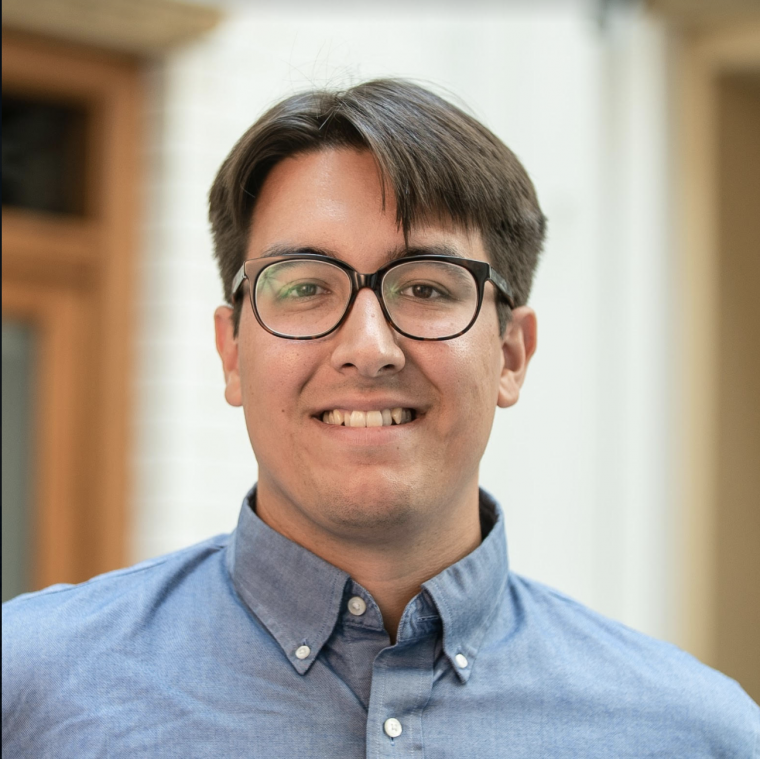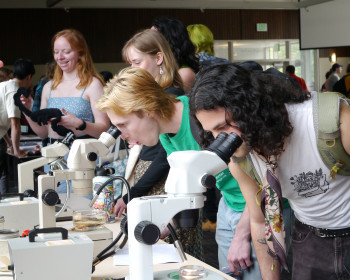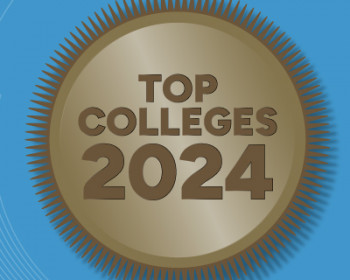Ocean Eale

Pronouns
Degree and Class Year
Current City
Major
Minor
Extracurriculars
Overseas study
Job Title, Organization
Internship
Continuing Studies
What three words would you use to describe L&C?
What made you want to come to Lewis & Clark?
One of my hānai aunties, Leslie Stewart, attended Lewis & Clark for two years. As one of my biggest influences—as a teenager and still well into adulthood—she definitely helped sell Lewis & Clark to me. Beyond that, I knew Lewis & Clark would be academically rigorous and challenging—and I do love a challenge. I also relished the fact that Lewis & Clark is in Portland because I have family ties here and to the wider Pacific Northwest, and I wanted to be closer to more of my family.
What have you been doing since graduation?
I’ve mostly worked in the public sector. After interning for then Portland City Commissioner Chloe Eudaly, I worked briefly filing patent applications at a law firm until I was hired to oversee constituent services in Commissioner Eudaly’s office in November 2019. I stayed in that role until Commissioner Eudaly lost her reelection campaign in 2020. Immediately after, I was hired to do the same work for Portland Mayor Ted Wheeler. I stayed in that role until August 2021 when I was hired to oversee the Advisory Bodies Program for the City of Portland. I’ve been in that position ever since.
How did Lewis & Clark prepare you for your job?
Working in the public sector—and in politics especially—has had its challenges, and cutting my teeth in the midst of a global pandemic, riots, economic disarray, and an insurrection was a lot to deal with, to say the least. That being said, the liberal arts education I received at Lewis & Clark taught me to look at the bigger picture and to approach my work holistically and with care. Through such a well-rounded education, I feel that I have the tools to be more flexible in solving problems, and I can also take a step back when I need a better, more informed perspective on things. I’ll also add that being at Lewis & Clark helped me make some important connections that were useful I started my career. Networking, which I don’t think is talked about enough, is so important, and Lewis & Clark is a great place to network.
What would you say is the most important thing you learned at Lewis & Clark?
First-year students are required to take faculty-led foundational seminar classes, and mine was called The Trial of Socrates, taught by Associate Professor John Holzwarth. I learned that Socrates said “I know that I know nothing.” That idea has such profound meaning to me because it’s helped to humble me and to realize when I walk into a situation that I need to check my arrogance at the door. It’s helped me keep an open mind and embrace the unknown. All in all, this idea has been my north star since my time at Lewis & Clark and has freed me to embrace life as it comes.
Why did you major or minor in German studies?
I didn’t come to Lewis & Clark intending to major in German studies, but my professor, Catherine Sprecher Loverti, showed me why it was worthwhile. I was definitely challenged yet I also enjoyed myself. My classes gave me a better appreciation for the German language and culture, as well as history. It also helped that the Year in Munich overseas program is set up to where students earn almost all of their course requirements while abroad.
How do you stay connected to Lewis & Clark as an alumnus?
I read the alumni magazine. I keep in touch with some of my former professors. I’ve also started giving regularly to the Michael Graham Scholarship, which is a new scholarship for local Portland-area high school graduates who are refugees or immigrants and are non-native English speakers.
Have you been to Alumni Weekend or other programming, like Homecoming, etc.? What did you enjoy about the event(s)?
In late 2019, I attended a reception for the Dallaire Scholarship, which I got to be a student representative for during my senior year. It was wonderful getting to see some of my mentors like Joann Geddes. Unfortunately, I haven’t attended any other events since the pandemic. However, I did show up as part of my job to Riverside and Palatine Hill Road to see the street sign officially changed from Southwest to South back in May 2020.
How do you describe the liberal arts?
If I had to sum it up in one word, I’d choose holistic. I appreciate how the liberal arts doesn’t pigeonhole you into one area and one area only—you’re required to take all kinds of classes. I took classes on Jane Austen, Intro to Music Theory, Geology, Mormonism in America, Russia and China post-Cold War, and more—and I’m a German Studies Major! I also appreciate that the liberal arts helps you to develop not just technical skills but soft skills, like the ability to think outside the box, navigating conflicting views and ideas, and living in ambiguity. Nothing about living in this world is black and white, as much as some folks try to portray it as such, a liberal arts education helps one to see beyond that simplistic view.
What was your favorite class? How did it expand your knowledge?
Either of the Intro to Constitutional Law classes I took with Professor Todd Lochner. He’s very challenging and a bit unorthodox in his teaching—though I readily confess I was a mediocre student in his class. All that being said, Lochner has a way to poke and prod his students, challenging them to defend their views while also building up a more informed understanding and respect for the word of law and the U.S. Constitution. Despite how hard it was, I miss being in that class. Also if you want to annoy Lochner, please ask him about (and continuously guess) his astrological sign.
Where did you find your community on campus?
This is a tough question for me. I did not have a typical experience as a student. I was a first-generation college student and a commuter student—it took me three buses and over an hour to get to campus from my home in Beaverton and (with exception to my year in Munich), I did this almost all four years of my time at Lewis & Clark. I didn’t have the experience of living in the residence halls, and I didn’t have excess time to party or participate in clubs. It was pretty lonely at times. However, I found others like me—first-generation students who had to work and also had an atypical time in college—through my coworkers at the Bon (Fields Dining Room). There were also others I met in various classes that made my time easier and who I could commiserate with when I needed to. I’ve lost touch with a number of people due to the pandemic but I hope if they’re reading this, they know how much I appreciate them!
Who was your mentor on campus? Why do you consider this person your mentor?
First and foremost, Catherine Sprecher Loverti. She was my professor for almost every year at Lewis & Clark. She understood that I wasn’t a typical student and that I was working to pay my way and commuting to campus—she was very accommodating and supportive. Catherine also challenged me. I wasn’t the best student coming into her class, but being in her class helped me be better and to care more about my education. I’d also add as mentors Margot Black and Jane Hunter—they’re no longer at Lewis & Clark but they encouraged and nurtured the activist in me. Because of them, I got more involved in Portland politics and was especially active in union organizing at the Bon. They continue to be influences on me, even after not seeing them in quite some time. Joann Geddes is another person I’d call a mentor. She really encouraged my involvement in the Dallaire Scholarship committee and it was a real honor getting to work with her to remember the 25th anniversary of the Genocide in Rwanda on campus and in Washington D.C.
If you studied overseas while at Lewis & Clark, how did you choose your program? What did your overseas study add to your L&C experience?
I spent my junior year in Munich, Germany. That period of my life was exhilarating. I had never left the U.S. before, so not only doing that for the first time but committing to spending a year abroad was like leaving for another planet. But as I’ve said before, I love a challenge. Studying abroad, I made friends who were local students as well as Americans from other colleges that were on our program. My social life was vibrant and I still keep in touch with a couple of folks from that time. I traveled a lot (11 countries altogether while there). I worked in an ice cream shop that serves the best ice cream in Munich (and probably the entire country). I also got really fit running in the Englischer Garten most days—I still run, but now in suburban Beaverton. Perhaps most life changing about my time studying abroad was that I became active in an Episcopal Church parish, and even got baptized while there. I’m now active in my local church where I eventually got confirmed and where I currently serve on the vestry.
More Admissions Stories
Admissions is located in Frank Manor House on the Undergraduate Campus.
MSC: 32
email admissions@lclark.edu
voice 503-768-7040
fax 503-768-7055
Vice President of Admissions and Financial Aid
Eric Staab
Admissions
Lewis & Clark
615 S. Palatine Hill Road MSC 32
Portland OR 97219

